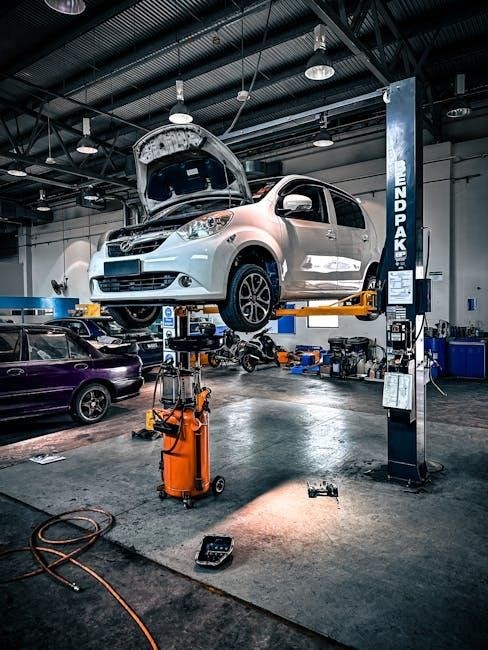What Does a Car Accident Lawyer Do: An Unified Guide
Car accidents can happen when you least expect them, turning your world upside down. This guide will help you navigate the legal waters and complexities that follow a car accident, providing essential guidance through every step of the process.
A car accident lawyer specializes in handling legal cases related to motor vehicle accidents, offering assistance to those injured due to another person’s fault. These attorneys gather information from the accident, obtain police reports, and seek compensation for personal injuries and damages. They understand the complexities of personal injury law and guide clients through each step of the legal process, ensuring informed decisions and protecting their rights against insurance companies. With their expertise, you’re less likely to overlook vital details that could impact your case.

Why Seek Legal Counsel After a Car Accident?
Hiring a lawyer after a car accident is crucial for navigating complexities, ensuring informed decisions, and negotiating with insurance companies. They protect your rights and fight for fair compensation.
Understanding the Complexities of Personal Injury Law
Personal injury law is complex, and a car accident lawyer understands these intricacies. An experienced car accident lawyer understands the complexities of personal injury law. They provide valuable guidance through each step of the process, ensuring you make informed decisions. With their expertise, you are less likely to overlook vital details that could impact your case; Understanding these laws is crucial for a successful claim. Navigating this field requires expert knowledge.
Ensuring Informed Decisions
Hiring a lawyer ensures you are well-informed about your rights and options. The lawyer will help clarify your rights and responsibilities, assisting you in understanding the details of your case. They can assist you in understanding the details of your case and what compensation you might be entitled to. They provide valuable guidance through each step, ensuring you make informed decisions. Legal guidance makes a big difference. With the lawyer’s expertise, you’re less likely to miss important details.
Negotiating with Insurance Companies
A lawyer acts as your advocate, negotiating with insurance companies on your behalf. They know how to counter lowball offers and fight for fair compensation. Your attorney’s expertise becomes invaluable as they navigate these discussions strategically. Negotiations often involve back-and-forth discussions. Be prepared for counteroffers; this is standard in settling claims. Your lawyer is essential here as they’ll navigate these discussions strategically. Trusting your lawyer’s judgment can lead to an outcome that offers both closure and financial relief.
What to Do Immediately After a Car Accident
The chaos that follows a collision often leaves many feeling overwhelmed and unsure of what to do next. The first thing is to assess your surroundings and check for injuries.
Assessing the Scene and Injuries
After a car accident, the first thing to do is assess your surroundings. Check for injuries, both to yourself and others involved. If anyone is hurt, its crucial to call emergency services immediately. They are equipped to handle medical situations and ensure safety at the scene. Stay calm while you wait for help. If possible, move your vehicle out of traffic to avoid further incidents. Turn on hazard lights as a warning signal for other drivers.
Calling Emergency Services
If, upon assessing the scene, you find that anyone is injured, your immediate action should be to contact emergency services. This ensures that medical professionals are dispatched to provide necessary care. When you call, clearly state the location of the accident, the number of people involved, and the extent of any visible injuries. Follow the dispatcher’s instructions and provide any additional information they request. Stay on the line until help arrives to guide emergency personnel to the scene.
Moving Vehicles and Turning on Hazard Lights
After ensuring everyone’s safety and if it is possible, the next step is to move vehicles out of traffic to prevent further accidents. If the vehicles are drivable and moving them won’t exacerbate injuries, carefully move them to a safer location, such as the shoulder of the road or a nearby parking lot. Once the vehicles are safely out of the flow of traffic, activate the hazard lights on all involved vehicles to warn approaching drivers of the situation ahead.

Gathering Information at the Accident Scene
After ensuring safety, gather information. Exchange details with all parties involved, documenting the scene with photos and collecting witness contact information. Accurate recollections will assist both you and your car accident lawyers.
Exchanging Details with All Parties Involved
Start by exchanging details with all parties involved. Collect names, addresses, phone numbers, and insurance information. Don’t overlook the importance of documenting the scene. This visual evidence can be invaluable later on. If there are witnesses nearby, ask for their contact details as well. Their statements may provide additional insights into what happened during the accident. Make sure to note the date, time, and location of the incident too.
Documenting the Scene with Photos
Snap photos of vehicle damage, license plates, and any relevant road signs or signals. This visual evidence can be invaluable later on. If there are witnesses nearby, ask for their contact details as well. Their statements may provide additional insights into what happened during the accident. Make sure to note the date, time, and location of the incident too. Even minor details can help build a clearer picture of events leading up to the accident.
Collecting Witness Contact Information
If there are witnesses nearby, ask for their contact details as well. Their statements may provide additional insights into what happened during the accident. Make sure to note the date, time, and location of the incident too. Even minor details can help build a clearer picture of events leading up to the accident. Keep a record of your own account while its fresh in your mind. Accurate recollections will assist both you and your car accident lawyers when navigating legal matters down the line.

Seeking Medical Attention After a Car Accident
After a car accident, your health is the top priority. Even if you feel fine, some injuries may not be immediately apparent, so seek medical attention as soon as possible for a thorough evaluation.
Importance of Immediate Medical Evaluation
Adrenaline can mask pain and symptoms, making it crucial to seek medical attention as soon as possible. A thorough evaluation by healthcare professionals ensures that any hidden injuries are identified early on; This could include concussions or internal injuries that might worsen over time. Remember, its better to be safe than sorry when it comes to your well-being after such a traumatic experience. Your recovery should always take precedence amidst the chaos;
Documenting Medical Visits and Treatments
Medical records will play an essential role in your case later, especially when dealing with insurance claims or legal proceedings. If youre experiencing discomfort or have unusual symptoms post-accident, dont hesitate to reach out for help. It is important to keep a record of all visits and treatments meticulously. Your well-being should always take precedence amidst the chaos of handling everything else related to the accident. If you do not document the symptoms, it may be more difficult to prove the injury in the future.
Addressing Hidden Injuries and Symptoms
Even if you feel fine, some injuries may not be immediately apparent. Adrenaline can mask pain and symptoms, making it crucial to seek medical attention as soon as possible. A thorough evaluation by healthcare professionals ensures that any hidden injuries are identified early on. This could include concussions or internal injuries that might worsen over time. If youre experiencing discomfort or have unusual symptoms post-accident, dont hesitate to reach out for help. Remember, it’s better to be safe than sorry when it comes to your well-being.

Contacting Your Insurance Company
After ensuring everyones safety and gathering essential information, its time to reach out to your insurance company. This step is crucial for protecting your rights and understanding your policy coverage fully before discussing settlement amounts.
Providing a Clear Account of the Accident
When you call your insurance company, provide a clear account of the accident without admitting fault. Stick to the facts: where it happened, who was involved, and any pertinent details about injuries or damages. Be prepared with documentation like photos from the scene or police reports; Knowing what youre entitled to helps in negotiations later on. Document dates, times, and outcomes of conversations for future reference as needed. This diligence can make a significant difference down the line if disputes arise.
Understanding Your Policy Coverage
Fully understanding your policy coverage before discussing settlement amounts is essential. Knowing what youre entitled to helps in negotiations later. Review your policy to understand the limits of your coverage. Document dates, times, and outcomes of conversations for future reference as needed. This diligence can make a significant difference down the line if disputes arise. Check for uninsured motorist coverage. Be aware of any deductibles that may apply. Document all communications with your insurance provider, and understand every clause within your coverage.
Keeping Records of Communications
It is paramount to keep records of all communications with your insurance provider. Document dates, times, and outcomes of conversations for future reference as needed. Note the names of representatives you speak with and the topics discussed. Save copies of emails, letters, and any other written correspondence. This diligence can make a significant difference down the line if disputes arise; Accurate and thorough records provide a clear timeline of events. Maintaining detailed notes can strengthen your position and protect your interests. This will help if any discrepancies arise.

Consulting with a Car Accident Lawyer
Once you’ve gathered the necessary information, it’s time to consult with your lawyer. This is a crucial step in navigating the aftermath of a car accident. Your lawyer will clarify your rights.
Clarifying Rights and Responsibilities
Your lawyer will help clarify your rights and responsibilities. They can assist you in understanding the details of your case and what compensation you might be entitled to. During this meeting, share all relevant documents and information from the accident scene. Transparency is key for effective representation. Your lawyer needs to know every detail to build a strong case on your behalf. Be open about any concerns or questions you have. Whether it’s about timelines, potential outcomes, or legal jargon that seems confusing—no question is too small.
Sharing Relevant Documents and Information
During this meeting, share all relevant documents and information from the accident scene. Transparency is key for effective representation. Your lawyer needs to know every detail to build a strong case on your behalf. Your lawyer will need the police report, photos of the accident scene, medical records detailing your injuries, and any communication you’ve had with the insurance company. Don’t hold back any information, even if you think it might be detrimental to your case. An experienced attorney can assess the situation and advise you on the best course of action.
Addressing Concerns and Questions
Be open about any concerns or questions you have; Whether it’s about timelines, potential outcomes, or legal jargon that seems confusing – no question is too small. This consultation sets the foundation for how your case unfolds moving forward. Don’t hesitate to ask your lawyer to clarify anything that’s unclear. Understanding the legal process is essential for making informed decisions about your case. Take notes during the consultation and follow up with your lawyer if you have any additional questions after the meeting. You should feel comfortable and confident with your legal representation.

Navigating the Legal Process
Navigating the legal process after a car accident can be overwhelming. It’s essential to understand your rights and obligations. Each step requires careful consideration. Understanding each stage helps alleviate some of that stress.
Filing Claims and Gathering Evidence
After a car accident, the initial step in the legal process involves filing claims. Your lawyer will guide you through this procedure, ensuring all necessary documents are accurately completed and submitted promptly. Gathering evidence is a critical component. This process includes collecting police reports, witness statements, photos of the accident scene, and medical records. Your legal team will meticulously compile this evidence to build a strong case on your behalf.
Understanding Timelines and Documentation
Navigating the legal process after a car accident requires understanding crucial timelines. Your attorney will explain the statute of limitations for filing a claim, ensuring you do not miss critical deadlines. Proper documentation is essential. This includes maintaining detailed records of medical visits, treatments, and expenses. Gathering and organizing all relevant papers can be overwhelming, but your lawyer will guide you through this process, ensuring all necessary documentation is prepared and submitted correctly to strengthen your case.
Preparing for the Discovery Phase
The discovery phase is a crucial part of the legal process after a car accident. It involves exchanging information with the opposing party. This may include providing documents, answering interrogatories, and attending depositions. Your lawyer will help you prepare for these activities, ensuring you understand what to expect. They will also assist in gathering relevant documents and information to support your case. Preparing thoroughly for the discovery phase can significantly impact the outcome of your case by providing a strong foundation for settlement negotiations or trial.

Settlements and Negotiations
Settlements and negotiations are crucial after a car accident. Your lawyer will help determine your claim’s value based on damages and present a strong case to the insurance company, skillfully navigating discussions for a fair outcome.
Assessing Damages and Determining Claim Value
After a car accident, a crucial step involves assessing the full extent of your damages. This includes not only the obvious vehicle repairs but also medical expenses, both current and future. Lost wages due to time off work should be calculated, along with any potential impact on your earning capacity. Furthermore, consider the intangible losses such as pain and suffering, emotional distress, and any long-term effects on your quality of life. Consulting with your attorney will aid in accurately determining the value of your claim.
Presenting a Strong Case Against the Insurance Company
Once the value of your claim is determined, the next crucial step is presenting a compelling case to the insurance company. This involves gathering and organizing all relevant evidence, including police reports, medical records, witness statements, and expert testimony. Your attorney will construct a persuasive narrative that clearly demonstrates the other party’s negligence and the extent of your damages. A well-prepared and thoroughly documented case significantly increases your chances of a fair settlement. Strong evidence strengthens your position and compels the insurance company to take your claim seriously, increasing the likelihood of a favorable resolution.
Understanding the Negotiation Process
Negotiation is a critical phase in resolving car accident claims, involving strategic communication between your attorney and the insurance company. Expect initial offers to be lower than the actual value of your claim; this is a common tactic. Your attorney will counter with a well-supported demand, justifying the compensation you deserve. This back-and-forth may involve multiple rounds of offers and counteroffers, requiring patience and skillful advocacy. Your lawyer will navigate these discussions, protecting your interests and striving for a fair settlement that adequately covers your damages. It is important to trust your lawyer’s judgement and stay informed through each stage.

Going to Court
If negotiations fail, going to court might be necessary. Your lawyer will guide you through the legal proceedings, ensuring all evidence is presented effectively. Communication with your lawyer is vital during this time.
Preparing for Legal Proceedings
If settlement negotiations are unsuccessful, your car accident lawyer will guide you through preparing for legal proceedings. This involves gathering additional evidence and interviewing witnesses to strengthen your case. They will organize all documentation, including medical records, police reports, and expert testimonies. Your lawyer will also prepare you for potential questions from the opposing side. Understanding the court procedures and what to expect can alleviate some of the stress associated with going to trial. Effective preparation is crucial for presenting a strong case in court.
Presenting Evidence Effectively
Presenting evidence effectively is crucial during legal proceedings, and your car accident lawyer will play a vital role in this process. They will strategically present evidence, including photos, videos, and witness testimonies, to support your claim. Your lawyer will also know how to present your medical records, expert opinions, and police reports effectively. They will anticipate challenges from the opposing side and prepare counterarguments. Skilled presentation of evidence can significantly impact the outcome of your case. It will highlight the negligence of the responsible party and help secure fair compensation.
Communicating with Your Lawyer
Maintaining open communication with your lawyer is vital throughout the legal process. Be honest and transparent with them, providing all relevant details about the accident and your injuries. Respond promptly to their inquiries and keep them informed of any changes in your medical condition or other relevant circumstances. Ask questions and seek clarification on any aspects of the case you don’t understand. Regular communication ensures that your lawyer has all the information they need to build a strong case and effectively represent your interests. It also helps you stay informed and actively involved in your legal proceedings.
How to Choose the Right Car Accident Lawyer
Choosing the right car accident lawyer is a pivotal decision that can significantly affect the outcome of your case. Look for a lawyer who has a proven track record with similar cases.
Looking for Experience in Local Court Systems
A car accident attorney familiar with local courts, judges, and opposing attorneys can navigate your case more effectively. Consider choosing a lawyer who has experience in your local court system. Their familiarity with the nuances of the local legal landscape can be a significant advantage. A local attorney will know the tendencies of judges and the strategies that are most likely to succeed in that specific jurisdiction, making them a valuable asset to your case. This makes them more effective.
Checking for a Proven Track Record
When selecting a car accident lawyer, it’s crucial to check for a proven track record with similar cases. A lawyer with a history of successful outcomes demonstrates their ability to effectively handle car accident claims. Look for evidence of favorable settlements or verdicts in cases similar to yours. This indicates their expertise and commitment to achieving the best possible results for their clients. A strong track record is a reliable indicator of a lawyer’s competence and dedication to your case.
Scheduling Consultations with Multiple Lawyers
Before making a final decision, schedule consultations with multiple car accident lawyers. This allows you to assess their communication style, experience, and approach to your case. Prepare questions about their track record, fees, and how they plan to handle your claim. Compare their answers and choose the lawyer who instills the most confidence and aligns with your needs. Consulting with several lawyers ensures you find the best fit for your specific situation. It empowers you to make an informed choice.

Contingency Fee Basis
Many car accident attorneys work on a contingency fee basis, meaning you pay nothing upfront. They receive a percentage of your compensation if the case is successful, making legal help accessible and low-risk.
Understanding the “No Win No Fee” Arrangement
The “no win no fee” arrangement, also known as a contingency fee basis, is a common practice among personal injury and car accident attorneys. This arrangement means that the client doesn’t pay any upfront fees or hourly rates. Instead, the attorney only gets paid if they successfully win compensation for the client’s claim. This makes legal representation accessible to individuals who might not be able to afford it otherwise, as it eliminates the financial risk of hiring a lawyer.
Accessibility and Low-Risk Legal Help
The contingency fee basis significantly enhances accessibility to legal assistance for car accident victims. Since there are no upfront costs, individuals can pursue their claims without worrying about immediate financial burdens. This arrangement makes hiring a car accident lawyer a low-risk proposition. You only pay if your case is successful and you receive compensation. This allows you to focus on your recovery while your attorney handles the legal complexities, knowing that you won’t incur legal fees unless you win.
Percentage of Compensation
Under a contingency fee arrangement, the car accident lawyer’s payment comes as a predetermined percentage of the compensation you receive. This percentage is agreed upon beforehand, ensuring transparency and eliminating surprises. Typically, the standard percentage ranges from 25% to 40%, although 33% is common. The exact rate can depend on the complexity of the case and the stage at which it is resolved, whether through settlement or trial. This system aligns the lawyer’s interests with yours, incentivizing them to secure the highest possible settlement.
